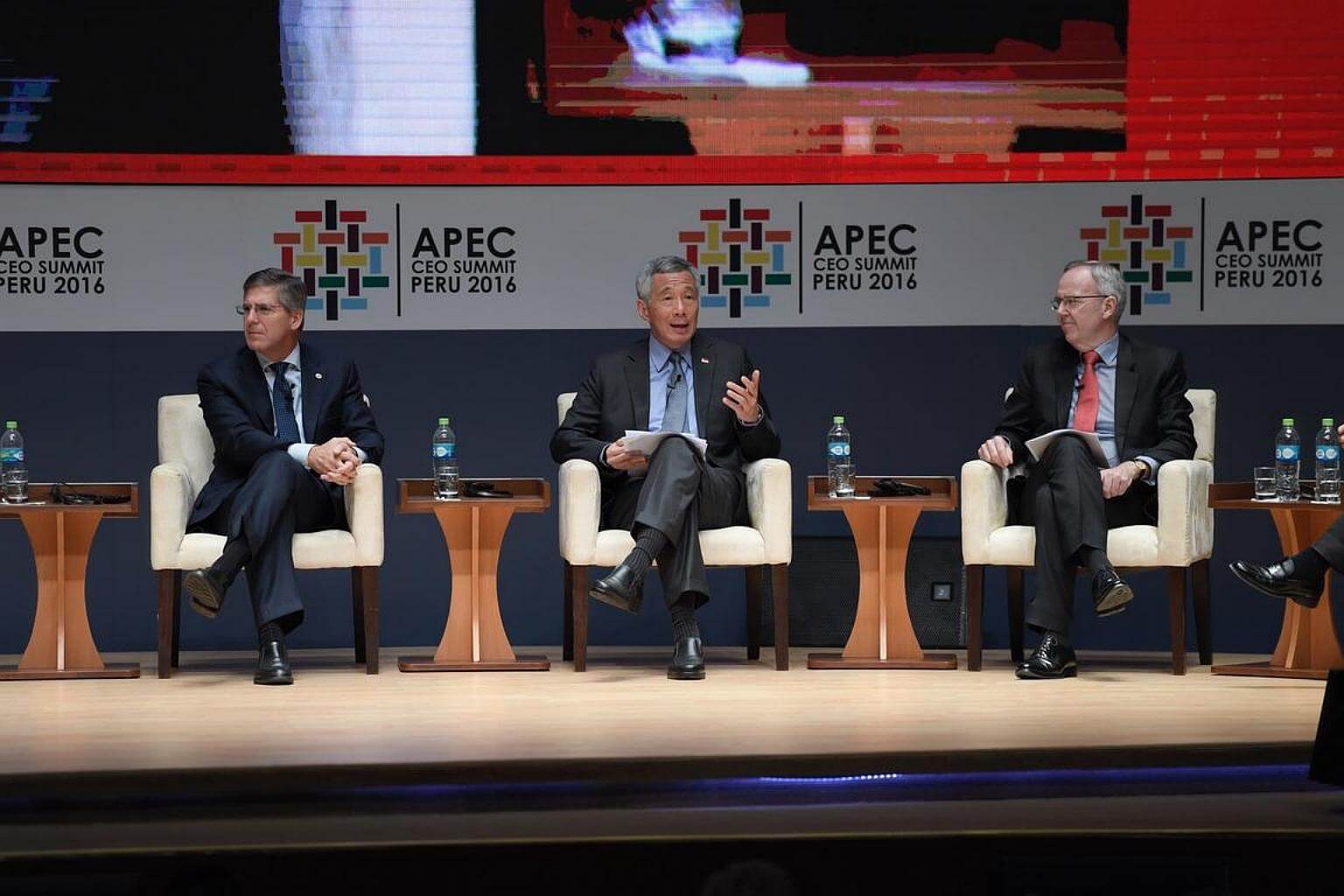Global trade at risk if US turns insular: PM
He says reality must reflect rhetoric when selling benefits of globalisation to the people
Sign up now: Get ST's newsletters delivered to your inbox

PM Lee Hsien Loong speaks at the CEO Summit on Nov 18, 2016.
ST PHOTO: CAROLINE CHIA
A United States that detaches itself from the world's economy will risk unsettling the global trading system that it has helped nurture and foster over the decades, Prime Minister Lee Hsien Loong said.
"It's the engine pushing for freer trade for many years," he said, noting that the US pushed for economic integration from the 1960s to 1990s, and played a crucial role in establishing institutions such as the World Trade Organisation.
If the US turns inwards, growth can be pursued in Europe and Asia "but you're missing out on a huge opportunity if America is not part of the story", he said on Friday.
"And it's not only missing out on the positive, but also risking a very big negative in terms of destabilising the global trading and strategic system," he added.
Mr Lee sat on a panel on global economic growth during the Asia-Pacific Economic Cooperation (Apec) CEO Summit and was responding to a question on how the world can adapt if US President-elect Donald Trump follows through on his campaign rhetoric and implements anti-trade policies.
The other panellists were PwC global chairman Robert Moritz; Rio Tinto group executive of growth and innovation Stephen McIntosh; 3M vice-president of Latin America Tamie Minami, and Anbang Insurance Group CEO Wu Xiaohui.
During the hour-long session, the panel discussed global trends such as rising anti-free trade sentiments, and business prospects amid the muted economic outlook.
When an audience member asked how people can be better educated about the benefits of globalisation, Mr Lee said it was not just a matter of education but also "making sure the reality reflects the rhetoric".
Citing how the economic situation has deteriorated in US states such as Ohio, he said investments must be pumped in and programmes set up to improve conditions so that young people feel hopeful about the future.
"Otherwise if we tell them it's all for the best and you are just part of the necessary sorrow in this best of possible worlds, I don't think you are going to win very many votes."
The panel also addressed improving the regulatory environment for businesses.
From Singapore's perspective, Mr Lee said "two complementary, almost contradictory points" are needed to remain business-friendly: ensuring stability, yet staying nimble during times of change. Investors who sink their money into Singapore have to know what to expect and be assured that agreements will be honoured over many terms of government.
On the other hand, when technology disrupts industrial norms, as seen in the rise of Airbnb and Uber, the authorities must recognise that old rules are no longer relevant and come up with a new framework.
Mr Lee also said that Singapore welcomes the One Belt, One Road initiative as China seeks to develop its trade routes and economic integration with its neighbours.
"We think it's the right way for China to engage with the world," he said, noting that Singapore was one of the first to state its intention to join the China-backed Asian Infrastructure Investment Bank.
Still, Mr Lee added that the nature of today's global network is such that "however strong an economy is, not all roads will lead only there". "It is important we understand that in this new world, there is no country which is the middle kingdom," he said.
SEE TOP OF THE NEWS


